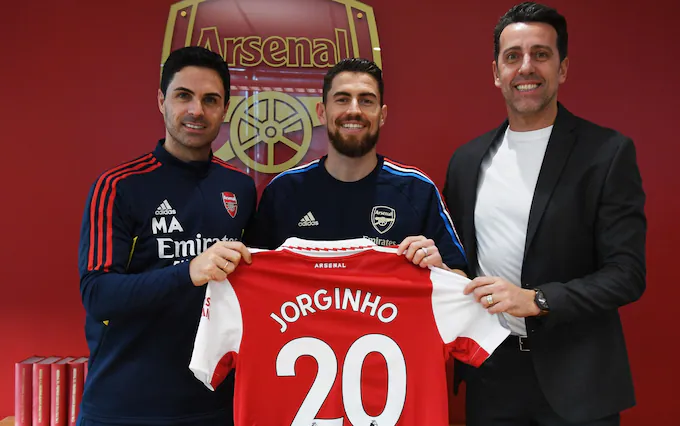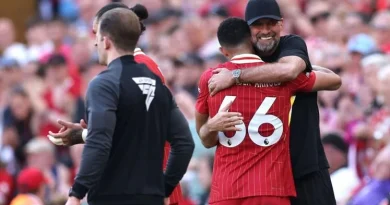Premier League Spending Down by £800m as Deadline Nears
London, England – As the Premier League transfer deadline approaches, spending has (Premier League Spending Down) significantly slowed compared to previous years. According to industry experts, the total expenditure by top-flight clubs is currently down by £800 million, raising questions about the future direction of the league’s transfer market.

Several factors have contributed to this decline. One of the most significant is the financial impact of the COVID-19 pandemic. The pandemic forced clubs to play behind closed doors for an extended period, resulting in a significant loss of revenue from matchday ticket sales and other commercial activities. This loss of income has made clubs more cautious in their spending, as they seek to maintain financial stability.
Another factor influencing
the slower spending is the increasing scrutiny of clubs’ finances by UEFA’s Financial Fair Play (FFP) regulations. These regulations limit clubs’ spending to a certain percentage of their revenue, and non-compliance can result in sanctions. (Premier League Spending Down) Clubs are therefore more hesitant to make excessive transfer investments, as they risk facing penalties.
Despite the slower spending, some clubs have still made significant signings Premier League Spending Down. These signings have provided a boost to the league’s competitiveness and excitement, but they have also raised concerns about the sustainability of such spending.
Transfer Spending
The slowdown in transfer spending has also had implications for the domestic market. In previous years, the Premier League has been a major destination for players from other leagues, but the current trend suggests that clubs are becoming more reluctant to spend heavily on foreign talent. This could have a negative impact on the development of English football, as it may limit opportunities for young English players to compete at the highest level.
As the transfer deadline approaches, it remains to be seen whether clubs will make any last-minute signings. Some experts believe that there could be a flurry of activity in the final hours of the window, as clubs scramble to fill gaps in their squads. However, others suggest that the current trend of slower spending is likely to continue.
The slowdown in Premier League transfer spending has significant implications for the future of the league. It raises questions about the sustainability of the current financial model, the impact on domestic football development, and the league’s ability to compete with other top European leagues. Only time will tell whether this trend is a temporary blip or a sign of a more fundamental shift in the Premier League’s transfer market.
A Deeper Dive into the Implications of Slower Spending
The reduced spending in the Premier League has several potential implications for the future of the league:
Impact on Domestic Talent Development: As clubs become more cautious in their spending, they may be less inclined to sign foreign players. This could create more opportunities for young English talent to break through and establish themselves in the Premier League. However, it could also lead to a decline in the overall quality of the league if clubs are unable to attract top-level international players.

Sustainability of the Current Financial Model: The Premier League’s current financial model is heavily reliant on television revenue. If clubs are unable to generate sufficient revenue from other sources, such as transfer fees and matchday income, the league’s financial stability could be at risk.
Competition with Other European Leagues: The Premier League has long been considered the most competitive and attractive league in the world. However, the slowdown in transfer spending could make it more difficult for the league to compete with other top European leagues (Premier League Spending Down), such as La Liga and Serie A.
Potential Changes to Transfer Regulations: The current transfer regulations may need to be revised to address the challenges posed by the slower spending. For example, UEFA could consider relaxing the FFP rules or introducing new mechanisms to encourage clubs to invest in youth development.
A Deeper Dive into the Implications of Slower Spending
The reduced spending in the Premier League has several potential implications for the future of the league:
Impact on Domestic Talent Development: As clubs become more cautious in their spending, they may be less inclined to sign foreign players. This could create more opportunities for young English talent to break through and establish themselves in the Premier League. However, it could also lead to a decline in the overall quality of the league if clubs are unable to attract top-level international players.
Sustainability of the Current Financial Model: The Premier League’s current financial model is heavily reliant on television revenue. If clubs are unable to generate sufficient revenue from other sources, such as transfer fees and matchday income, the league’s financial stability could be at risk.

Competition with Other European Leagues: The Premier League has long been considered the most competitive and attractive league in the world. However, the slowdown in transfer spending could make it more difficult for the league to compete with other top European leagues, such as La Liga and Serie A.
For example, UEFA could consider relaxing the FFP rules or introducing new mechanisms to encourage clubs to invest in youth development.
The Future of the Premier League
The slowdown in transfer spending is a significant development with far-reaching implications for the future of the Premier League. While the reasons for this trend are complex, it is clear that the pandemic, FFP regulations, and other factors have played a role.The future of the Premier League may depend on the ability of clubs and league officials to adapt to these changing circumstances.
Additional Considerations
The Impact of the European Super League: The failed attempt to launch a European Super League has had a significant impact on the football landscape. While the project was ultimately abandoned, it has raised questions about the future of European football and the power dynamics between clubs, leagues, and governing bodies.
The Role of Financial Fair Play (FFP): FFP has been a controversial topic in recent years. Some argue that the regulations are necessary to ensure financial stability in football, while others believe that they stifle competition and innovation. These innovations could have a significant impact on the transfer market, as clubs may be able to identify and develop talent more effectively.


